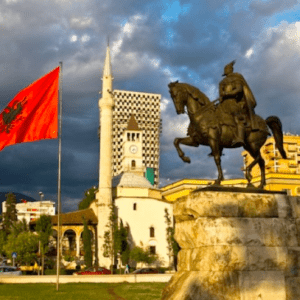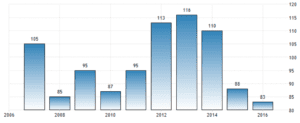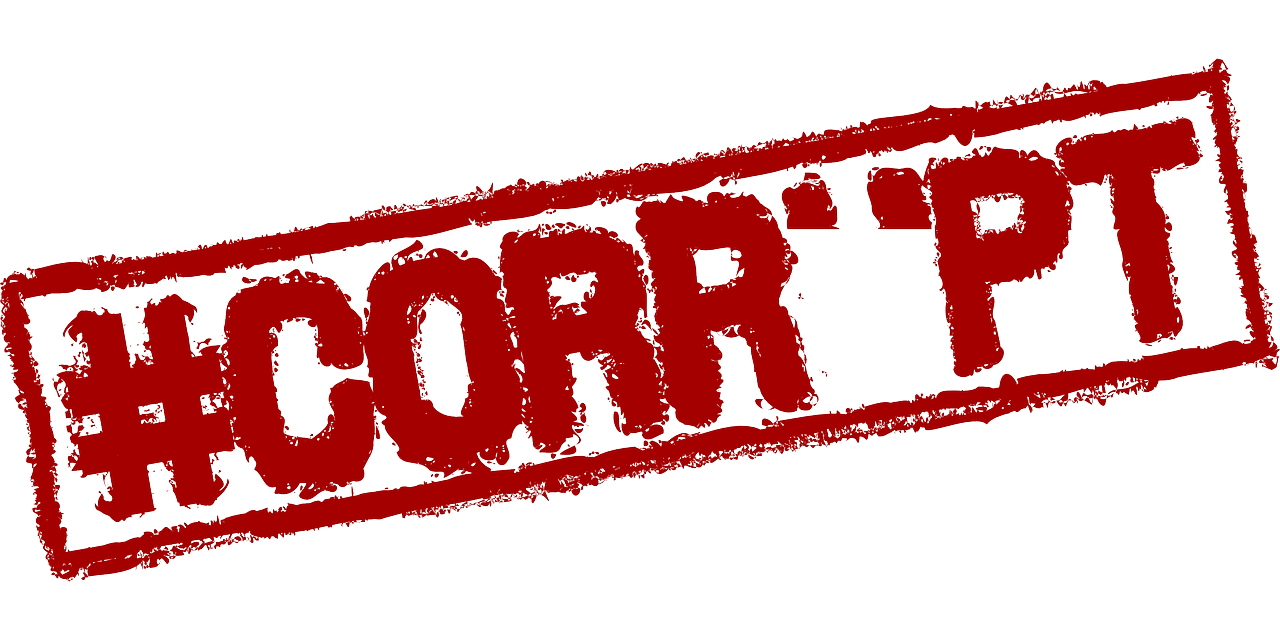Corruption is neither new to the politics nor specific to a nation or a region. Yet its effects can be seen more pronounced in some cases. Think of a country with a young population, strategic location and deep historical tradition… Yet it is still not among the most developed countries. What are the obstacles in front of Albania? Could corruption be one of the main detriments impending a better future? Corruption, as it does everywhere, damages the social wealth and deprives people from any incentive to work for their future. Corruption by itself can be fought, if public will is strong and able to effect the rulers. But what could be worse is the common belief among the people that they are helpless in the face of corruption, and trying to fight corruption would be futile.

What is corruption?
Generally speaking corruption can be defined as “the abuse of entrusted power for private gain”. Corruption can be classified as grand, petty and political, depending on the amounts of money lost and the sector where it occurs.[1] There are many reasons of corruption, both at the individual and at the societal level. One of the first things that come to mind as reasons of corruption is moral decay at the societal level and its equivalent, low moral quality at the individual level. But, it is not that simple.
Social scientists spend many years thinking about types and causes of corruption. They have come up with two main types (political vs. bureaucratic) of corruption and various causes of them.[2]
Political corruption is the corruption that is conducted by the highest level of leadership (e.g. the president, ministers, governors etc.). Political corruption is more likely when the executive is practically not accountable to legislature and the judiciary. In other words, we witness more corruption cases in those countries where the rule of law is not respected and the regime is more authoritarian.
Bureaucratic corruption, also known as petty corruption, is the corruption that is conducted at the lower levels. A typical example for petty corruption is the bribe that you pay to the police officer when you get caught speeding or driving under influence. Bureaucratic corruption is also more likely in authoritarian regimes. Some scholars say that poverty and red tape in such regimes compel people to corruption. Some others say that autocratic elites allow petty corruption to buy the loyalty of people.[3]
What are the costs of corruption?
In many countries, especially in former communist countries including Albania, people underestimate the negative outcomes of corruption. This misinterpretation is the biggest and the deadliest of all problems in any country that is fighting against corruption.[4] For that reason corruption resembles cancer. If you cannot treat this illness, it will certainly kill you. There is no other way.
Corruption impacts societies in multiple ways. In the worst cases, it costs lives. Short of this, it costs people their freedom, health or money. The cost of corruption can be classified into four main categories: political, economic, social and environmental.
On the political front, corruption is a major obstacle to democracy and the rule of law. In a democratic system, offices and institutions lose their legitimacy when they are misused for private advantage. This is harmful in established democracies, but even more so in newly emerging ones. It is extremely challenging to develop accountable political leadership in a corrupt climate.
Economically, corruption depletes national wealth. Corrupt politicians invest scarce public resources in projects that will line their pockets rather than benefit communities, and prioritize high-profile projects such as dams, power plants, pipelines and refineries over less spectacular but more urgent infrastructure projects such as schools, hospitals and roads. Corruption also hinders the development of fair market structures and distorts competition, which in turn deters investment.
Corruption corrodes the social fabric of society. It undermines people’s trust in the political system, in its institutions and its leadership. A distrustful or apathetic public can then become yet another hurdle to challenging corruption.
Environmental degradation is another consequence of corrupt systems. The lack of, or non-enforcement of, environmental regulations and legislation means that precious natural resources are carelessly exploited, and entire ecological systems are ravaged. From mining, to logging, to carbon offsets companies across the globe continue to pay bribes in return for unrestricted destruction.[5]
Case for Albania[6]
Albania[7] is the 83 least corrupt nation out of 175 countries, according to the 2016 Corruption Perceptions Index reported by Transparency International.[8] Corruption rank of Albania averaged 98.69 from 1999 until 2016, reaching an all-time high of 126 in 2005 and a record low of 81 in 2002.
ALBANIA CORRUPTION RANK

SOURCE: https://tradingeconomics.com/albania/corruption-rank (Transparency International)
Unfortunately, “offering gifts” to public servants is widely accepted practice. Fight against corruption should aim at eliminating root causes of this sickness. It is highly likely that Albania will become an EU-member. In this regard, people should stop perceiving the corruption as a part of their daily lives and act in a decisive way, with the support of international community, to wipe corruption out.
Here is an example that could inspire Albania: While German Ambassador to Albania was travelling to Italy by ship, the controller for the tickets refused to take his money as he is an ambassador. Ambassador was not able to convince the person to take his money, and continued his journey. After his return to Albania he donated the price of the ticket to a German charity foundation in Albania. He also reported the situation to Berlin and the answer he got was astonishing. Berlin said that he had to pay for the ticket before his trip and not after it. This one example clearly shows what Albania needs: no tolerance to corruption and respect to the rule of law.
The need for better public governance is voiced at various levels. The Albanian opposition leaders have been calling to stop ill-governance. However, a strong belief in the possibility of success in fight against corruption is required among the Albanians as erasing corruption will not be an easy, short task.
Some can say that the corruption which is experienced by Albania is the residual of the communist system in the Balkans. But other examples in the world counters this argument. Strong drive by people requesting better governance has given fruit in cases like South Korea.
Recommendations
Some prerequisites are required for any anti-corruption campaign to be successful:
- A strong belief in success. Corruption is not a destiny: In all schools and universities teachers and lecturers must create awareness about corruption. The banner about corruption in front of the Albanian Prime Ministry is not enough to urge whole nation to fight against it. More active campaigns should be conducted in all walks of life. People should very well understand the negative outcomes of the corruption. They should know the underlying reason of their poverty. Furthermore they should have a perception that corruption is something that they can fight against. Their motto can be “This is not my destiny!”.
- Freedom of information and transparency: These are sine qua non for the campaign to be successful. Public should demand this from the governors. A resistance to this kind of change would be inevitable by those benefiting from status quo. Some measures can be taken outside the governing circles such as campaigns on social media. Besides, there are websites that you can increase your awareness about corruption such as www.alvateli.org and www.ipaidabribe.com/. Motto: This country is mine. I must have a say in my future!
- Decisiveness and patience: People should be read for the long haul. The people have to accept the fact that it is not easy to heal this badly cancer instantly. It takes time and it needs patience. Being decisive is key in solving this problem. What is important is to find a permanent solution. Motto: There is no other way than putting an end to corruption.
- Set up NGOs against corruption: Having support from civil society is a key element for the success. In addition to this, forming national institutions and NGOs will be helpful. This will allow people to question the public authorities. Official authorities should lead the way in forming NGOs and urge public to join the activities. Universities and business people must provide material and intellectual support. It is just like a tripod consisting of government, private sector and civil society. Only with their cooperation and coordination this deadly cancer can be destroyed.
- Support from international community is crucial: Support from the UN and the EU will be of crucial importance at the beginning and in forming Albania’s own experience. Increasing bilateral relations in all fields with countries which are least corrupted such as Netherlands, Switzerland and Norway, will help Albania to learn from good practices in those countries. An old idiom says “A person is known by the companies he/she keeps”.
- Rearranging the public service system: The number of the public servants including the members of the parliament should be at reasonable level and their salaries should be comparable to their peers in developed countries. Furthermore, the officials should have rights protecting them against the government; otherwise it will not be difficult to keep them away from corruption. Currently political practice in Albania, results in replacement of nearly all public officials with the loyalists after elections. From the head of the institutions to the police officers or teachers, every official feels this pressure upon him/her. This has two results: The first is the impossibility of having institutional traditions. The second is official are compelled to be corrupted. In political sense, rather than proving their merit to stay at the job, they are proving their loyalty to newly elected government. In economic sense, it resembles and effort to benefit as much as possible from the system before leaving office. In either way Albanian people lose. This is a lose-lose game which must change.
- Reassuring the respect for the rule of law and empowering the independency of the justice system: Independent judiciary is the insurance of the whole system.
Conclusion
Albania would be Denmark or Netherlands of the Balkans. Only obstacle before this goal is corruption. People should decide once and for all: “Do they want to live in a prosperous country or in a corrupted one?” I strongly believe that nothing can stop Albanian people if they believe in the result.
References:
[1] Please see: “http://www.transparency.org/what-is-corruption/#define”.
[2] For more detailed types of corruption please see: http://www.icac.org.hk/newsl/issue30eng/button4.htm
[3] Anti-corruption glossary: “http://www.transparency.org/glossary”.
[4] In this chapter, the author, in addition to his personal experience, mostly benefitted from Afra Raymond’s TedTalk: “Three myths about corruption”. Selective list of TedTalks related to fighting against corruption: Heather Brooke, “My battle to expose government corruption”; Peter Eigen, “How to expose the corrupt”; Ashraf Ghani, “How to rebuild a broken state”; Ngozi Okonjo, “Want to help Africans? Do business here”; Charmian Gooch, “Meet Global corruption’s hidden players”.
[5] For a detailed study please see: IMF Staff Discussion Note “Corruption: Costs and Mitigating Strategies”, “http://www.imf.org/external/pubs/ft/sdn/2016/sdn1605.pdf”.
[6] In this chapter, the author, in addition to his personal experience, mostly benefitted from Ramadan Cipuri’s article titled “Albania’s Socio-Economic Problems and Suggestions for Solution”, please see: “http://www.tasam.org/Files/Icerik/File/arnavutlukun_sosyo_-_ekonomik_problemleri_ve_onerilen_cozumler_f6638986-71a5-4717-9751-7991e6537c9d.pdf”.
[7] Country information of Albania (from CIA Factbook):
GDP (PPP): $34.21 billion (2016 est.) Country comparison to the world: 125
GDP per capita (PPP): $11,900 (2016 est.) Country comparison to the world: 127
Unemployment: 17.3% (2015 est.) Country comparison to the world: 162
Population below poverty line: 14.3% (2012 est.)
[8] 2016 Corruption Perceptions Index of Transparency International, please see: “https://www.transparency.org/country/ALB”.

